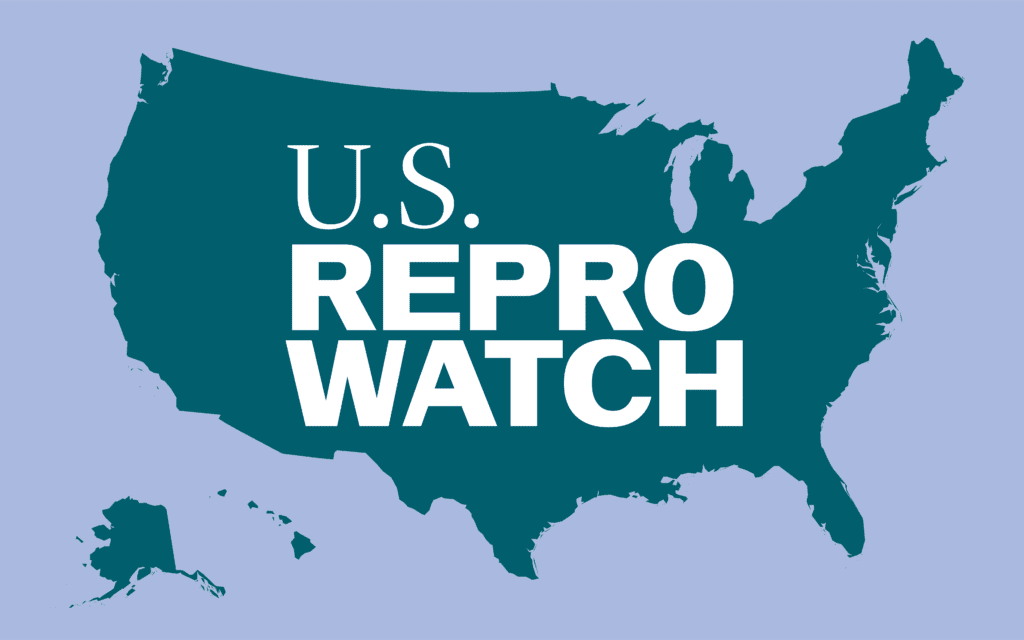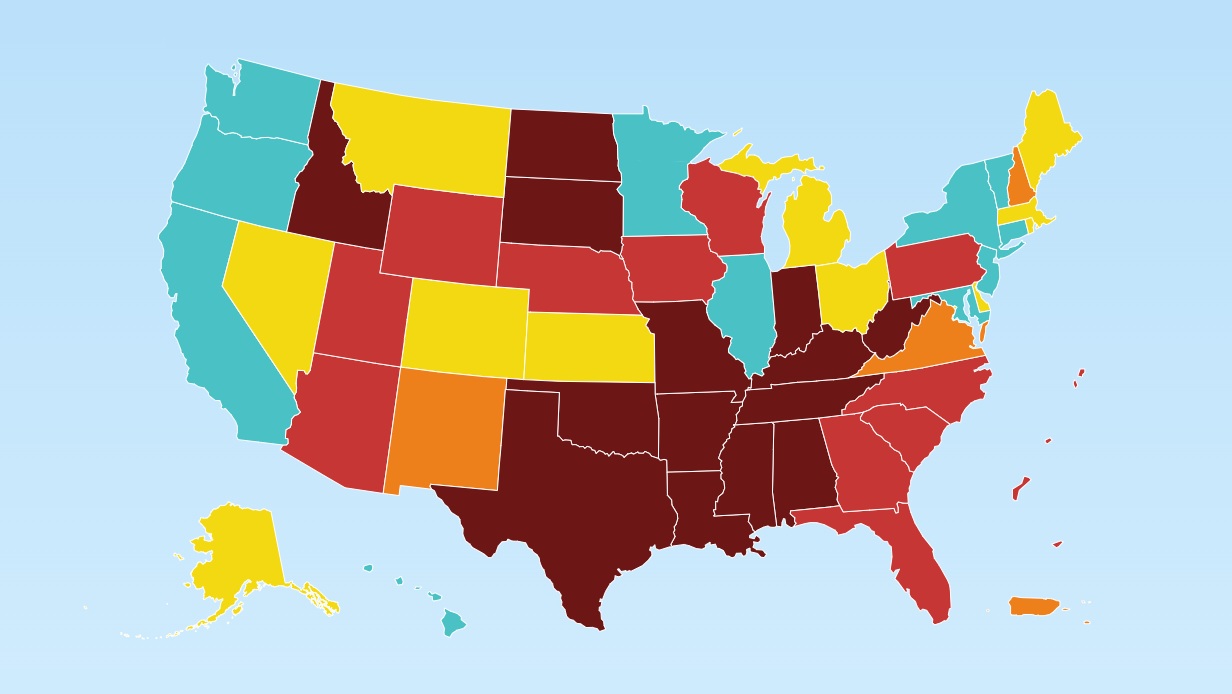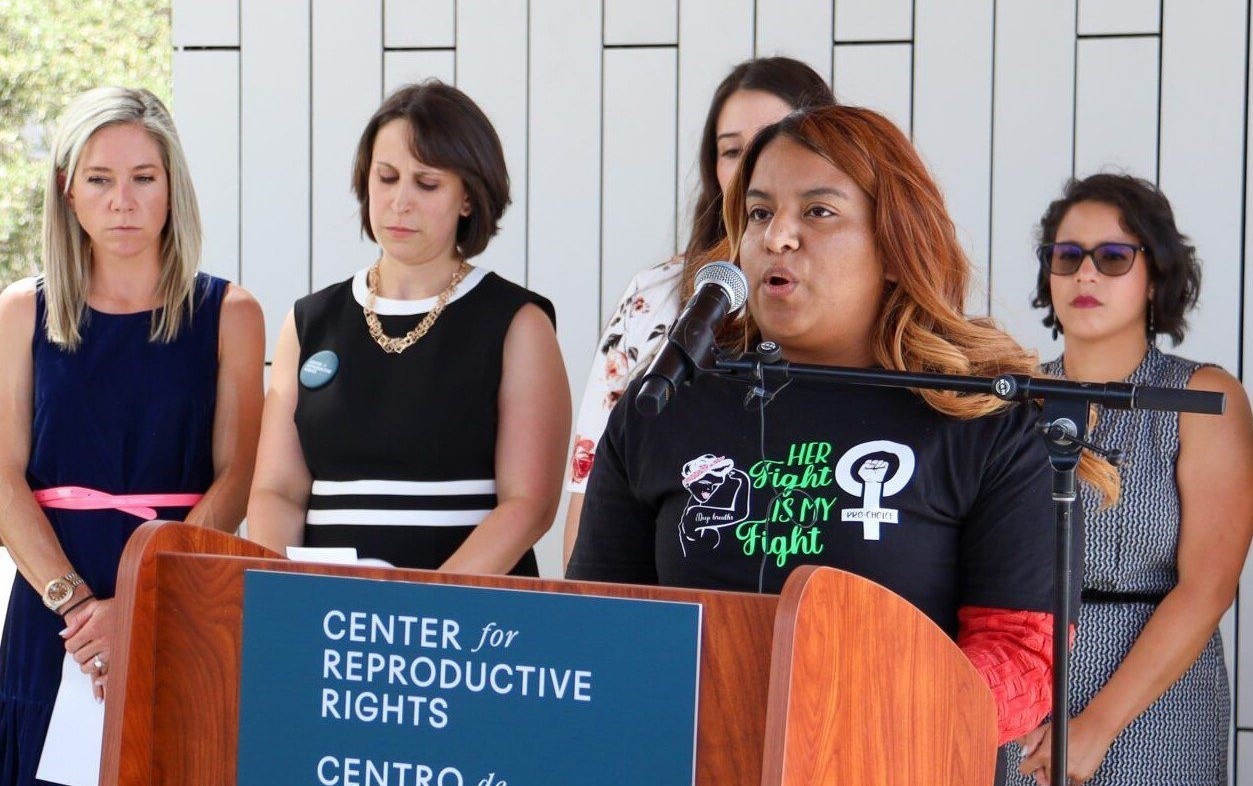U.S. Repro Watch, April 4
Florida voters to weigh in on abortion rights after ban is upheld, SCOTUS hears major abortion case, and more news on U.S. reproductive rights.

U.S. Repro Watch provides periodic updates on news of interest on U.S. reproductive rights. Here are a few recent items you won’t want to miss:
1. The Florida Supreme Court allowed the state to ban abortion—but cleared the way for a November vote on abortion rights.
- On April 1, the Court upheld the state’s 15-week abortion ban and cleared the way for Florida’s six-week ban, which will take effect 30 days from the decision. Overturning decades of precedent, the Court ruled that the Florida constitution’s explicit right to privacy no longer protects abortion rights.
- In a separate decision on the same day, the Court allowed a state constitutional amendment to appear on the November ballot that would enshrine abortion rights into Florida’s constitution.
“[The Florida Supreme Court has] dismantled Floridians’ long-standing right to abortion under the state constitution. Thankfully, Florida voters will have the chance to get that right back this November.”
—Nancy Northup, President and CEO, Center for Reproductive Rights, commenting on the Court’s rulings, 04.01.24
2. The U.S. Supreme Court heard arguments in a case that threatens nationwide access to an abortion medication.
- The case, Alliance for Hippocratic Medicine v. FDA, was filed in an attempt to rescind FDA approval of the abortion pill mifepristone and undo recent FDA actions to increase access to the medication. Medication abortion is the most common method of abortion in the U.S. and has a well-documented 20-year safety record.
- During the arguments on March 26, a majority of the Justices appeared skeptical as to whether the anti-abortion advocates who brought the case have the right to sue the FDA. The Court is expected to issue a ruling before the end of its term this summer.
After Roe Fell: Abortion Laws by State
Half the U.S. states now ban or severely restrict abortion access.
3. Arguments were held April 4 in the Tennessee medical exceptions case.
- The case, Blackmon v. State of Tennessee, was brought by the Center on behalf of two physicians and seven women denied abortion care who faced serious pregnancy complications that put their health, lives and future fertility at risk.
- The case challenges the medical necessity exception to Tennessee’s total abortion ban.
4. The Texas Medical Board’s proposed guidelines to clarify when doctors can perform abortions refused to provide specifics.
- Although the proposed guidelines reiterated that doctors should exercise their ‘reasonable medical judgment,’ cases such as Kate Cox’s show that the Texas Attorney General can and will second-guess a doctor’s judgment.
- The proposed rules also create a new and burdensome documentation system that physicians must use if they provide abortions under the exception.
Voices from Abortion Ban States
Plaintiffs in Center cases speak out about how they were denied essential abortion care—even though their health, lives and future fertility were at risk.
Did you know?
Americans across party lines strongly support access to medication abortion—as well as people’s ability to make decisions about abortion with their doctors, according to a new poll by Axios/Ipsos.
Highlights of the poll’s findings include:
- Regardless of party, seven in ten (72%) Americans say they support women obtaining medication abortion from their doctor or a clinic.
- Four in five (81%) respondents agree abortion issues should be managed between a woman and her doctor, not the government—a sentiment existing across party lines.
- Fifty-eight percent say they are less likely to vote for a candidate that supports restricting access to abortion.
Read more about the survey here.
Coming Up
April 24: U.S. Supreme Court arguments in Idaho EMTALA case.
- In the case, Idaho v. United States, the Department of Justice is arguing that Idaho’s near-total abortion ban conflicts with the Emergency Medical Treatment and Labor Act (EMTALA)—a federal law requiring hospital emergency departments to provide “stabilizing treatment”—since it prevents Idaho hospitals from stabilizing patients in need of abortion care. The lawsuit will decide whether Idaho hospitals are obligated to treat these patients.
- The Center submitted an amicus (“friend of the court”) brief in the case March 28 on behalf of pregnant patients in states with abortion bans who were denied or delayed stabilizing abortion care while experiencing obstetrical emergencies. The Center argues that EMTALA’s protections are critical to ensure that pregnant patients with obstetrical emergencies receive necessary lifesaving and health-preserving abortion care.
U.S. Repro Watch
Read previous U.S. Repro Watch posts.


